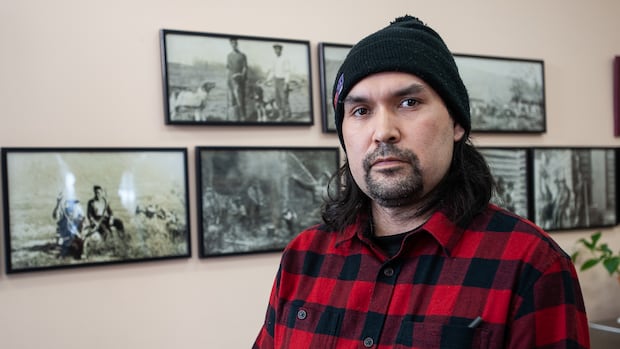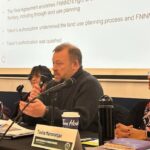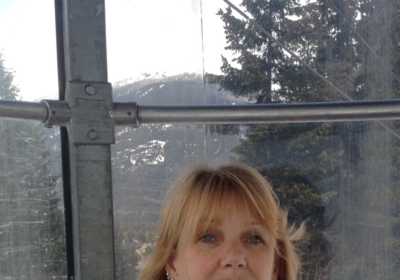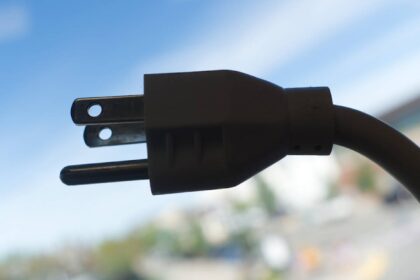NorthPrime Minister Mark Carney recently announced the grid connection as part of his list of “nation-building” projects. While Ottawa has put up $40 million for a pre-feasibility study, the only new money announced earlier this month was $139 million for B.C. Hydro to study the North Coast Transmission Line, to which the Yukon link would eventually connect. Earlier this week, the Yukon Development Corporation said affected communities favour the megaprojectJulien Greene · CBC News · Posted: Nov 22, 2025 7:00 AM EST | Last Updated: November 22Listen to this articleEstimated 5 minutesThe audio version of this article is generated by text-to-speech, a technology based on artificial intelligence.Dylan Loblaw, Chief of the Ross River Dena Council. Loblaw says the Kaska community doesn’t yet support the Yukon-B.C. grid connection project. (Julien Greene/CBC)Claims that communities along the proposed routes of the Yukon-B.C. grid connection have no qualms about the project aren’t true, according to at least one First Nation. “It’s bull,” said Dylan Loblaw, chief of the Ross River Dena Council.Earlier this week at the Geoscience Forum in downtown Whitehorse, the Yukon Development Corporation played up the megaproject, which comes with a price tag of about $4 billion. It’s a long way off. Even Premier-designate Currie Dixon has said so. That hasn’t stopped fanfare in the mining industry and across the territorial and federal governments, it appears.Prime Minister Mark Carney recently announced the grid connection as part of his list of “nation-building” projects. While Ottawa has put up $40 million for a pre-feasibility study, the only new money announced earlier this month was $139 million for B.C. Hydro to study the North Coast Transmission Line, to which the Yukon link would eventually connect. Gary Gazankas, the president of the Yukon Development Corporation, said the prime minister’s announcement has made a splash.Gazankas also said partnerships with affected First Nations are crucial and co-ownership of infrastructure could happen down the line.Letters of support from nations, he said, have come in.“The great news is there are still conversations happening and no one is opposed to this project,” Gazankas said.‘There’s no real partnership, there’s no true reconciliation’Loblaw, the chief of the Ross River Dena, said that’s a bunch of hot air.”I’d just like to correct that record — let everybody know that the Ross River Kaska Nation did not provide out support for this type of project,” he said.A preliminary analysis by the Crown corporation states two transmission lines are feasible. Splitting at Watson Lake, they would travel north, to Faro — through vast Kaska territory. Then it would go west, to Whitehorse, ending at the Takhini substation.Loblaw said this grid tie is really about powering the mines — among them, the colossal Casino project, which, as it stands, would be off-grid, meaning fossil fuels would be needed to power it.Loblaw said the grid tie would fuel further harm to the land.“Why support a major project when they’re gonna water down our involvement?” he said. “There’s no real partnership, there’s no true reconciliation.”B.C.’s Site C dam on Nov. 6, 2024. The Yukon-B.C. grid connection is on the latest list of nation-building projects. (B.C. Hydro)Another affected community is the Taku River Tlingit First Nation. In an email, spokesperson Charmaine Thom said other governments, including their agencies and corporations, must recognize the nation’s rights and title, which is subject to ongoing negotiations.The First Nation wants to be an active participant during the process “to ensure our voices and positions are prominent at the negotiation tables,” she said.“This participation will allow us to contribute to the success of this historic initiative, which is of benefit to all Yukoners, and address any concerns while engaging fully in discussions regarding any implications for our land claims.”The benefits?The analysis states the transmission lines would electrify “several diesel-reliant communities,” which could possibly include Ross River. Gazankas said Watson Lake, Upper Liard and Lower Post are likely candidates.Gazankas went through a list of other things, including more jobs and turning the territory into an energy exporter, selling power to Alberta and B.C.Above all, it seems like snaking power to the mines is paramount.“Realizing the full potential of the Yukon’s mineral, and thus economic, potential, will require investment in new electricity generation,” the analysis states.The W.A.C. Bennett on the Williston Lake Reservoir, near Hudson’s Hope (B.C. Hydro)Enter the Casino project, which the analysis states at life-end would produce more than four billion pounds of copper alone.“Infrastructure is a key piece of the puzzle to bring the Casino project into production, and the Yukon-B.C. Grid Connect project is a linchpin for its future development.”The Casino project would be an energy hog. The analysis states it would require more than double what the territory’s current grid can supply.And what the mine produces — often referred to by politicians as “critical minerals” — could feed into defence efforts.On Friday in Halifax, Nova Scotia, Canada’s Defence Minister David McGuinty said the grid connect project is what he calls “dual use” — that is, infrastructure that serves civilians and the military.“We’re looking at trying to get all of Yukon off diesel fuel,” he said. “This is an integration of not just what we’re doing on the defence side, but we’re also doing on the major project side. We need to make sure that we protect our security and sovereignty in the North, and we need to do this with our Indigenous peoples.”Despite upcoming mines like Casino — and the massive amount of greenhouse gas emissions it would likely generate — Gazankas said overall, a grid connection would significantly reduce territorial greenhouse gas emissions, which continue to rise.The grid tie, he said, would offset an estimated nine million tonnes of CO2. That’s equivalent to 120,000 tanker trucks’ worth of gasoline.“We’re saying, with a grid connect project, we could really avoid this amount of greenhouse gas emissions,” he said.ABOUT THE AUTHORJulien Greene is a reporter with CBC Yukon. A Kanyen’kehá:ka member of Six Nations of the Grand River Territory and settler, he writes about First Nations’ rights, the land and water. Among other newsrooms, Julien has worked at APTN, The Globe and Mail, the Toronto Star and The Narwhal. He earned his Bachelor of Journalism degree at Carleton University and lives in Whitehorse. He can be reached at julien.greene@cbc.ca
Thursday, 5 Mar 2026
Canada – The Illusion
Search
Have an existing account?
Sign In
© 2022 Foxiz News Network. Ruby Design Company. All Rights Reserved.
You May also Like
- More News:
- history
- Standing Bear Network
- John Gonzalez
- ᐊᔭᐦᑊ ayahp — It happened
- Creation
- Beneath the Water
- Olympic gold medal
- Jim Thorpe
- type O blood
- the bringer of life
- Raven
- Wás’agi
- NoiseCat
- 'Sugarcane'
- The rivers still sing
- ᑲᓂᐸᐏᐟ ᒪᐢᑿ
- ᐅᑳᐤ okâw — We remember
- ᐊᓂᓈᐯᐃᐧᐣ aninâpêwin — Truth
- This is what it means to be human.
- Nokoma











